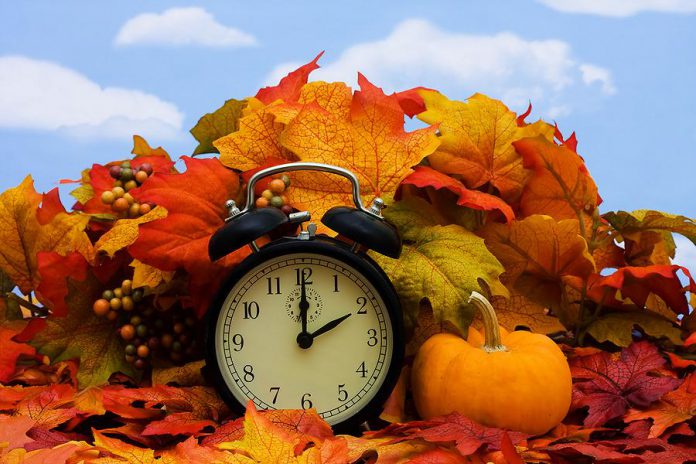Daylight Saving Time (DST), also known as “summer time”, comes to an end at 2 a.m. on Sunday, November 1st. Most of us welcome gaining an extra hour of sleep in the fall — but it’s not without its drawbacks.
We used to set our clocks back one hour on the last Sunday of October (and forward one hour on the first Sunday in April) until 2007, when the U.S. decided to change it to the first Sunday of November (and the second Sunday in March) in an attempt to conserve energy.
Canadian provinces that observe DST followed suit to avoid issues with economic and social interaction with the U.S. Interestingly, the U.S. Congress reserves the right to revert back to pre-2007 schedule if the change doesn’t result in energy savings.
Although it’s commonly thought Benjamin Franklin came up with the idea, it was actually New Zealand entomologist George Hudson who in 1895 proposed a two-hour shift in the clocks (he wanted more daylight to collect insects).
A few years later, English outdoorsman William Willett also proposed advancing the clocks during the summer months (he wanted more daylight to golf).
The first governments to implement DST were Germany and Austria-Hungary in 1916, as a way to conserve coal during World War I. Britain and most other European countries adopted it shortly after, and the United States and Canada adopted it in 1918.
While the evidence is mixed, some research finds that “springing forward” increases heart attacks and traffic accidents but not “falling back”. Other research has found that “falling back” results in more accidents involving pedestians.
In any case, moving clocks forward or backward changes our exposure to daylight and affects our circadian rhythm — the body’s natural internal clock. Gaining an extra hour of sleep can actually make you feel “jet lagged”.
Tips for coping with the time change
It can take up to a week to adjust your internal clock to the shift in daylight hours. Here are some suggestions for how you and your family can adapt more quickly to the time change:
- Each night leading up to Sunday, try going to sleep 15 or 20 minutes later than normal (and waking up 15 or 20 minutes later than normal).
- Don’t stay up extra late on Saturday night because you are gaining an hour (although this might be difficult if you’re going to a Halloween party!)
- Make sure you keep bedrooms dark in the morning (after DST ends, the mornings will be lighter earlier).
- Eat a healthy breakfast when you first wake up, as food is one way to tell your body it’s the beginning of the day.
- After the time change, expose yourself to daylight (or bright light indoors) during waking hours as much as possible, and avoid bright light when it’s dark outside.
- Reduce screen time in the evening (television, computers, smartphones, and tablets), especially an hour or two before bedtime.
- Reduce your use of caffeine and alcohol during the day and increase your physical activity.


























